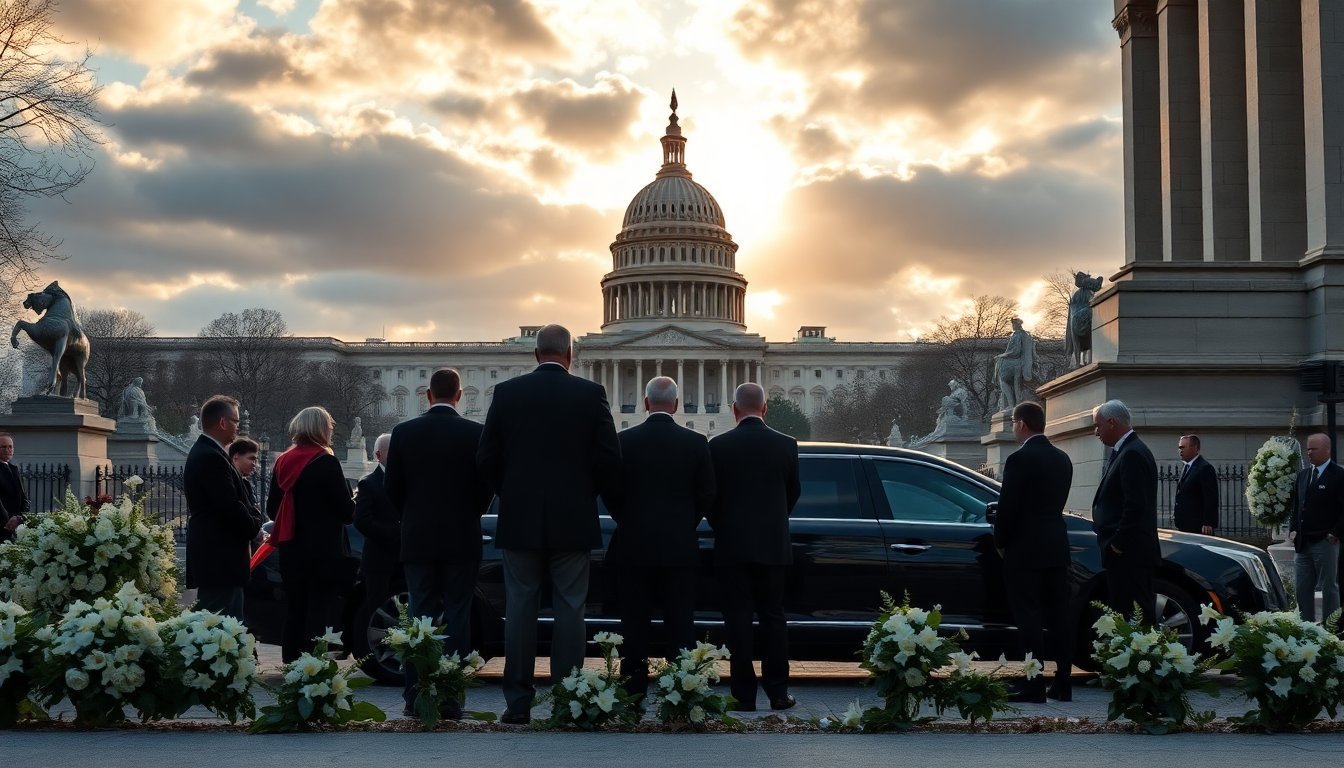Table of Contents
On November 3, Richard Bruce Cheney, a prominent figure in American conservatism and a pivotal player in the post-9/11 era, passed away. His funeral, attended by Washington elites, notably excluded former President Donald Trump, reflecting the complex relationships within the Republican Party. Cheney’s extensive career included significant roles in both the Gulf War and the war on terror, which continues to evoke divided opinions across the nation.
Born on January 30, 1941, in Lincoln, Nebraska, Cheney’s upbringing in a family that valued public service foreshadowed his later political prominence. He began his political journey as an intern for Congressman William A. Steiger, eventually rising to hold formidable positions, including the 46th Vice President of the United States under George W. Bush.
The ascent of a political titan
Cheney’s political journey is marked by strategic acumen and relentless ambition. After earning degrees in political science from the University of Wyoming, he held various influential roles, including White House Chief of Staff during Gerald Ford’s presidency. His tenure in Congress from 1979 to 1989 solidified his status as a leading Republican figure.
Key roles and responsibilities
As Secretary of Defense under President George H.W. Bush, Cheney oversaw military operations during Operation Just Cause and Operation Desert Storm. His decisions during these conflicts laid the groundwork for his future role in the Bush administration, where he became a key architect of the 2003 invasion of Iraq. Cheney’s push for military action was based on claims of weapons of mass destruction in Iraq, which were later disproven, casting a long shadow over his legacy.
Cheney’s influence peaked during his vice presidency, often described as unprecedented in its power. He was known for his behind-the-scenes maneuvering and decisive input in the administration’s response to the September 11 attacks, shaping U.S. foreign policy for years. His advocacy for the Global War on Terror and controversial practices, such as enhanced interrogation techniques, sparked intense debate and criticism.
A legacy of controversy
Despite significant contributions to national security, Cheney’s popularity waned over time. His approval ratings plummeted following the fallout from the Iraq War and revelations about the administration’s tactics. By the end of his vice presidency, his approval rating had fallen to an astonishing 13%, contrasting sharply with the 68% approval he enjoyed immediately after the September 11 attacks.
Political realignment and evolving views
Over the years, Cheney’s political views evolved. He notably supported same-sex marriage, influenced by his daughter Mary, who is openly gay. This divergence on social issues highlighted the shifting dynamics within the Republican Party and showcased Cheney’s complex persona, oscillating between staunch conservatism and a more progressive outlook on personal rights.
In the years following his vice presidency, Cheney initially endorsed Donald Trump during the 2016 election but distanced himself after the events of January 6. His endorsement of Democratic candidate Kamala Harris in the presidential election marked a significant departure from mainstream Republican views, illustrating fractures within the GOP.
Cheney’s death due to complications from pneumonia and vascular disease marks the end of an era in American politics. His life and career represent a rich tapestry of achievements, controversies, and complex relationships that have left a lasting impact on the political landscape. As the nation reflects on Cheney’s legacy, the debates surrounding his decisions and their repercussions continue to resonate in contemporary political discourse.


